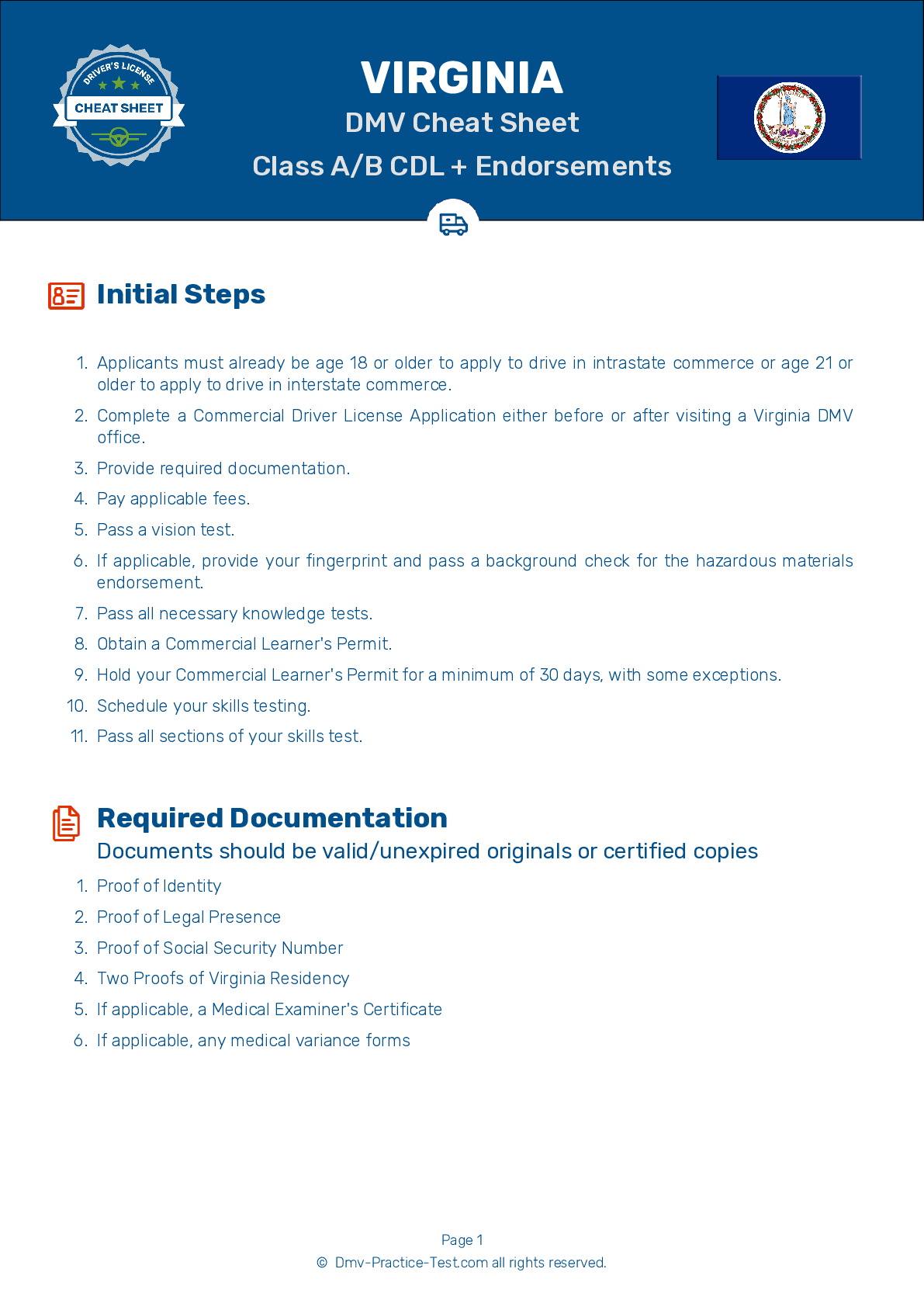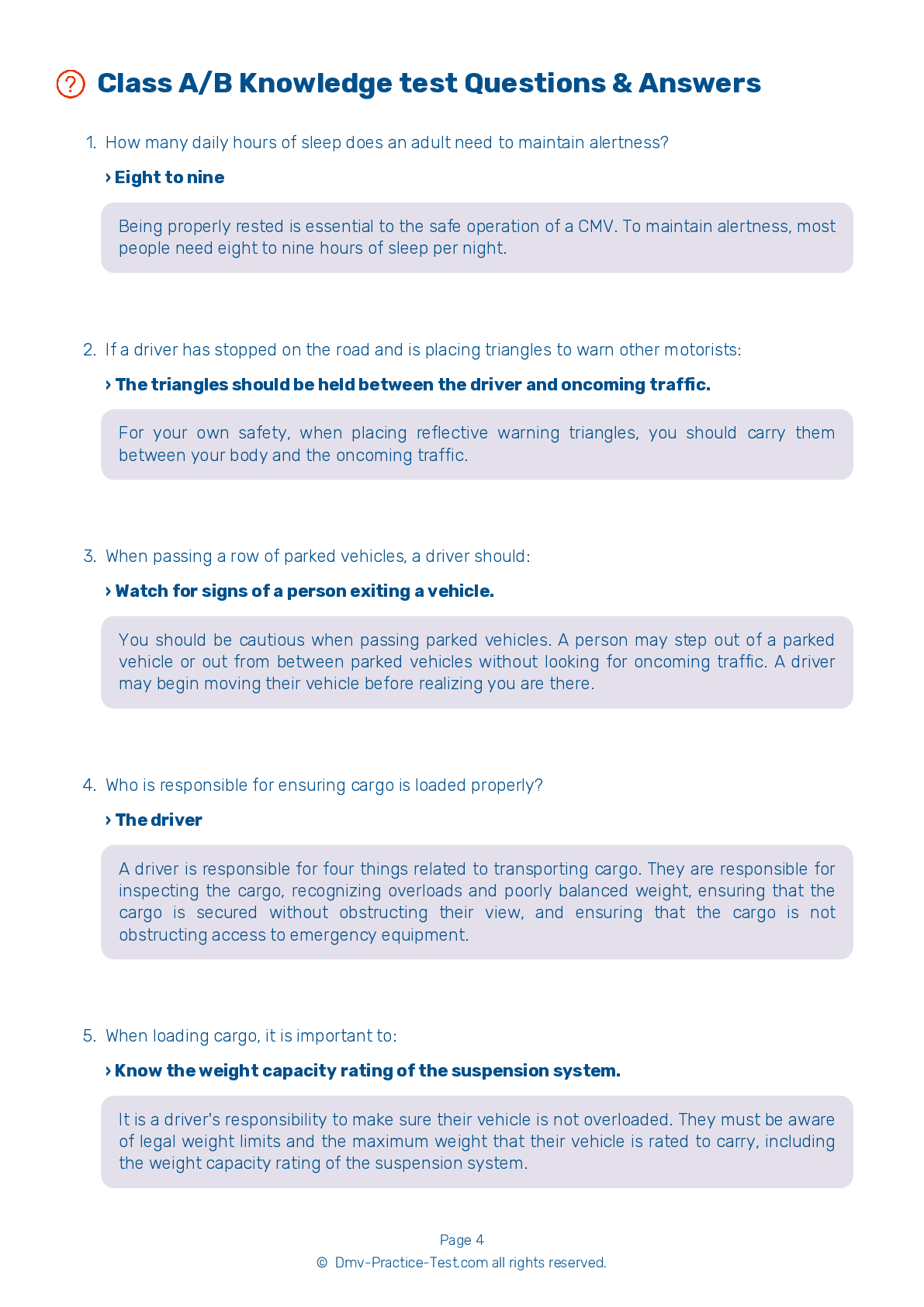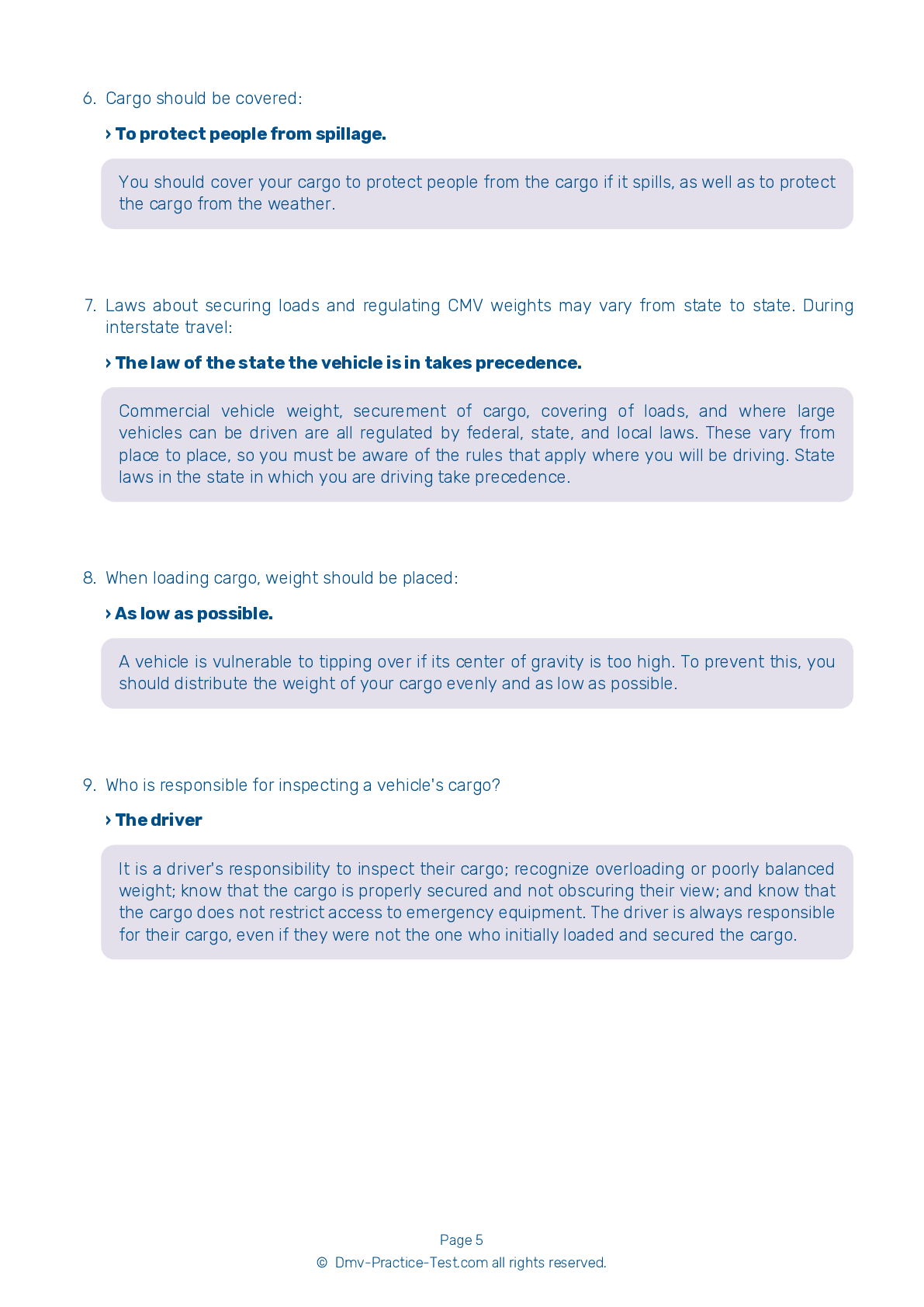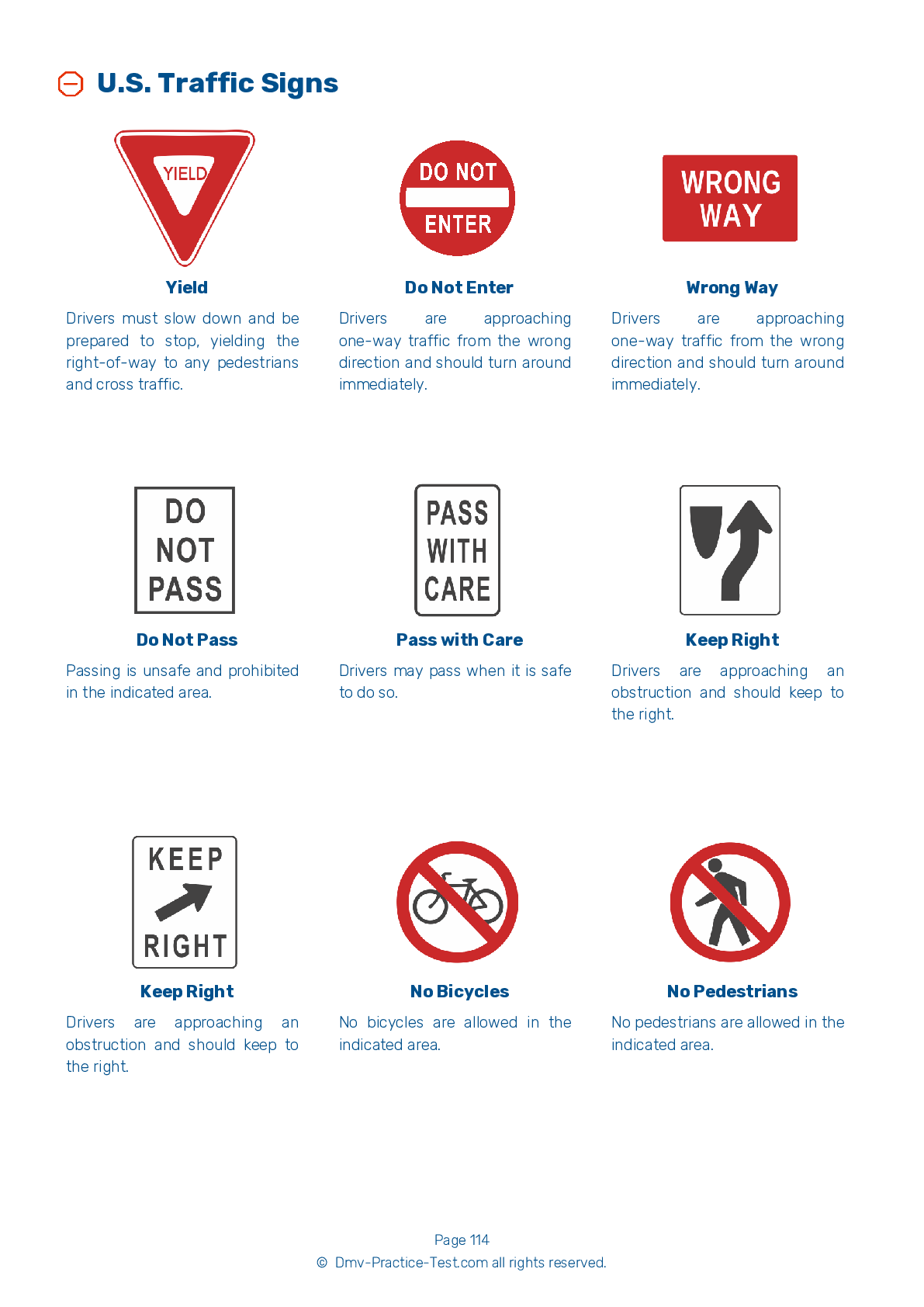Combination #1
Combination Vehicles Practice Test | Virginia 2026 #1 Page 3 of 3
Train for FREE online with our Virginia CDL combination vehicle test. The official exam test consists of several obligatory parts, with all of them checking your knowledge of different blocks of road rules. If you need to obtain a VA combination license in 2026, practice as much as possible. Free sample tests published on our website will help you check and improve your knowledge and boost your grades. Please bear in mind that DMV requirements for issuing a combination license may vary from state to state.
20
16
20
15 . A trolley valve:
The trailer hand valve (also referred to as the trolley valve or Johnson bar) is a mechanism that works the trailer brakes. It should only be used to test the brakes. Using it while the vehicle is being driven could cause a skid. Never use the trailer hand valve while parking because doing so may release the air pressure from the braking system, releasing the brakes that are holding the vehicle in place.
16 . If unsure if a trailer has an Anti-Lock Braking System (ABS), you can:
If you do not know whether or not a trailer is equipped with ABS, look under the vehicle for the electronic control unit and wheel speed sensor wires coming from the back of the brakes.
17 . The "crack-the-whip" effect can:
Trailers can overturn as a result of the "crack-the-whip" effect. The last trailer in a combination is the most prone to tip over due to this effect. Drivers should be aware of the rearward amplification of their specific vehicles and drive accordingly.
18 . To find out if a vehicle that was built before 1998 has an Anti-Lock Braking System (ABS), you can:
If you are operating a vehicle built before 1998 and are unsure if the trailer has an Anti-Lock Braking System (ABS), you can check under the trailer for wheel speed sensors coming from the back of the brakes.
19 . If a load is placed on one side of a trailer, the trailer:
Positioning the weight of a load on one side of a trailer may cause the trailer to lean to that side, increasing the risk of a rollover during turns and lane changes.
20 . Keeping cargo low can:
Rollovers can happen when a combination vehicle is turned too quickly. To help prevent the risk of rollover, it is important to keep the vehicle's center of gravity low by loading cargo as close to the ground as possible.
2026 Virginia | Frequently Asked Questions
In Virginia, a Commercial Driver's License (CDL) Class A is defined as a license that allows the holder to operate any combination of vehicles with a Gross Combination Weight Rating (GCWR) of 26,001 lbs or more, provided the Gross Vehicle Weight Rating (GVWR) of the vehicle(s) being towed is over 10,000 lbs. It includes tractor-trailers, truck and trailer combinations.
A Class A CDL license in Virginia allows holders to operate vehicles such as tractor-trailers, truck and trailer combinations, tank vehicles, livestock carriers, and flatbeds. The vehicles can have a Gross Combination Weight Rating (GCWR) of 26,001 lbs or more, provided the towed vehicle(s) have a Gross Vehicle Weight Rating (GVWR) over 10,000 lbs.
To obtain a Class A CDL license in Virginia, you must be at least 18 years old (21 for interstate driving), have a valid Virginia driver's license, pass a vision test, and complete a self-certification process. You'll also need to pass knowledge and skills tests, including general knowledge, combination vehicle, and air brakes tests. Medical examinations may also be required.
In Virginia, to qualify for a Class A Commercial Driver's License (CDL), you must be at least 21 years old. This age requirement is set to ensure that drivers have the maturity and experience needed to handle large commercial vehicles on both intrastate and interstate highways.
In Virginia, specific endorsements are not required for a Class A CDL license, but they can broaden your driving capabilities. Endorsements such as Hazmat (H), Tank (N), Passenger (P), and School Bus (S) may be added after passing additional written and skills tests. These allow you to transport hazardous materials, drive tank vehicles, passenger vehicles, and school buses respectively.
The Class A CDL skills test in Virginia encompasses three parts: a pre-trip vehicle inspection, a basic vehicle control test, and an on-road driving test. The pre-trip inspection assesses your ability to inspect your vehicle before driving. The basic control test evaluates your ability to maneuver and control the vehicle. The on-road test assesses your ability to safely operate the vehicle in various traffic situations.
Yes, Class A CDL license holders may face limitations based on their specific endorsements or lack thereof. For instance, without a Hazardous Materials endorsement, they cannot transport hazardous materials. Additionally, restrictions can be placed on a CDL due to the driver's physical condition, such as needing corrective lenses or an automatic transmission restriction.
Yes, it is possible to take the written Class A CDL test in languages other than English in Virginia. The Virginia Department of Motor Vehicles (DMV) offers the test in various languages. However, federal regulations require that all CDL applicants demonstrate proficiency in English to ensure safety on the roads.
Yes, accommodations can be requested for the Class A CDL written test in Virginia if you have a disability. These may include accessible facilities, extra time, or other necessary adjustments. It's recommended to contact the Virginia Department of Motor Vehicles (DMV) in advance to discuss your needs and ensure appropriate accommodations can be provided.
Yes, you can retake the Class A CDL written test in Virginia if you don't pass on your first attempt. You must wait at least 15 days before retaking the test. There's no limit to how many times you can retake the test, but each attempt will require a new testing fee.



